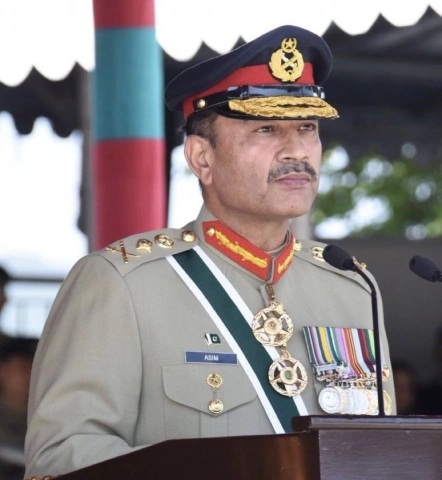The widespread speculation is that the all-powerful army has raked up the Afghan refuge issue to deflect from the ongoing political and economic turmoil before the national elections and to explain away its failure to curb violence by the militants … writes Dr Sakariya Kareem
Pakistan’s Islamists have joined ‘nationalists’, for differing reasons, in opposing what they call the “forced eviction” of 1.7 million Afghan nationals by the government even as the Sindh province protests the massive settlement of refugees of not just the Afghans, but also of settlers from India since the 1947 Partition.
The widespread speculation is that the all-powerful army has raked up the issue to deflect from the ongoing political and economic turmoil before the national elections and to explain away its failure to curb violence by the militants.
Alleging this, Awami Awaz states that the issue is bound to become an election issue. “Some sections are of the view that an unelected government is being used/abused for the tasks for which it has no mandate. Till some time back when this issue was considered a burning problem in the country and all provinces were not in favour of illegal migrants especially ones from Afghanistan continuing to stay in the country, almost all political parties in KPK (Khyber Pakhtunkhwa) opposing the government’s plans to oust illegal migrants including Afghans.

While the Islamists do not want their support base among the Afghan settlers, built over the last 50 years to erode, for the ‘nationalists’ of KPK province, the Afghans are fellow Pashtuns who are being forced to return to a place that holds no promise of peace, re-settlement or employment.
Pakistani intelligentsia notes that the Taliban government in Kabul has not reacted to Islamabad setting an October 30 deadline for the massive movement. Only 6,500 people have returned.
For Sindh, where refugees could become an election issue with the PPP in power, it is a repeat of history. Millions of migrants from India at the time of the Partition were diverted to Sindh since Punjab did not want to have them. Millions moved to various Sindh cities, lived outside if unwelcome and finally made their way into the cities and into Sindhi society.
The editorial counselled: “All well-wishers of Sindh need to join hands on this burning issue and should have a clear and concrete strategy on this subject so that the continuing burden of outsiders can be lessened on Sindh.”
Connecting the Afghans’ illegal stay with terrorism the way the government has projected, Saheb Khan Bhati in Awami Awaz daily (October 10, 2023) writes: “If Afghan refugees are once sent back gently to their country, it will mean lesser terror attacks in the country and also it will mean peaceful environs in Sindh. But, if rulers do not send Afghan refugees back to their country despite crackdowns and campaigns these days against illegally staying migrants, including Afghans, then we will have to bear and tolerate them forever.”
Pakistani media is full of stories of the Afghans being exploited in the suddenly imposed situation where house owners are evicting tenants, touts are promising alternate housing and safe migration for a heavy price and finding ways to dodge the law. “The Afghan immigrants have started to sell their assets, properties, dollars, and gold. The markets of Peshawar are busy with different kinds of transactions. The jewellers are avoiding buying due to the fear of raids by government officials and arresting them on false charges of smuggling or some other false charge. Some trades are selling their gold, because the prices of gold have come down and they are afraid that prices may reduce further,” according to Aaeen Daily.
Pakistan is not a signatory to the Geneva Convention on refugees and has “lived in denial” of the presence of millions of refugees, not only the estimated 3.7 million Afghans but others, who live illegally and have multiplied over the decades. They include an estimated two million Bengalis who stayed on when East Pakistan separated to become Bangladesh. Badly maintained refugee camps of ‘muhajir’ (migrants from India), the Bengalis and the Afghans in and on the outskirts of Karachi. Over the years, Karachi became the battleground of the muhajirs and the Afghans.
Arif Azad writing in Dawn newspaper notes the ‘contradiction’ in Pakistan’s current policy. While the government has set a deadline for the Afghans, the Islamabad High Court has in its ruling earlier this week the right of people to settle. Pakistan must change its “flawed foreign policy” and work towards signing the Geneva Convention on refugees before evicting those currently on its soil.

Leave a Reply